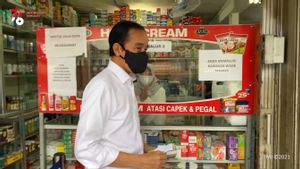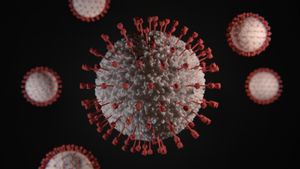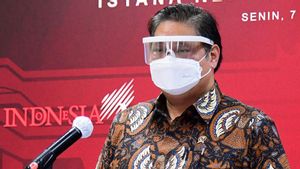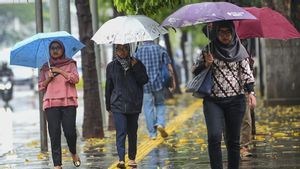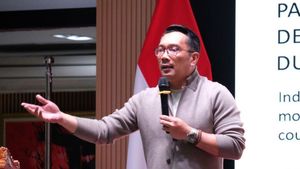JAKARTA - People who have been vaccinated accounted for three-quarters of cases of COVID-19 infection in Singapore in the past four weeks. But they were not seriously ill, according to government data.
The country's rapid vaccination program means that the number of people who have not been vaccinated is shrinking.
While the data show the vaccine is highly effective at preventing severe cases, the data also reveal a risk of transmission in those who have received the vaccine, so vaccination alone is not sufficient to inhibit virus transmission.
Of the 1,096 cases of local transmission in Singapore in the past 28 days, 484 (44 percent) were from people who were fully vaccinated, 30 percent were from people who were partially vaccinated, and 25 percent were not vaccinated, according to data on Thursday, July 22.
As reported by Antara, Friday, July 23, there are seven serious cases that require oxygen assistance, and one case is being treated intensively. None of the eight patients have been fully vaccinated, the health ministry said.
"There is ongoing evidence that vaccination helps prevent disease severity if the recipient becomes infected," the ministry said, adding that all infected recipients of the full vaccine were asymptomatic, or had only mild symptoms.
Infection in people who have been vaccinated does not mean the vaccine is ineffective, experts say.
"As more people are vaccinated in Singapore, we will see more cases of infection among vaccine recipients," said Teo Ying Ying, dean of the Saw Swee Hock School of Public Health at the National University of Singapore (NUS).
"It's important to always compare it to the proportion of people who have not been vaccinated... Let's say Singapore achieves a complete vaccination rate of 100 percent... then all cases of infection will be from those who have been vaccinated and none from those who have not been vaccinated."
Singapore has inoculated nearly 75 percent of its 5.7 million population, the second-highest after the United Arab Emirates, and half of its population has received full vaccinations.
As countries with advanced vaccination programs prepare to coexist with COVID-19 as an endemic disease, their focus shifts to preventing deaths and serious cases through vaccination.
But they still struggle with the issue of how to differentiate public health policies, such as wearing masks between those who have been vaccinated and those who have not.
Singapore and Israel, for example, recently re-imposed a number of restrictions to combat a spike in infections triggered by the highly contagious Delta variant, while the UK lifted nearly all of its restrictions this week although the number of cases remains high.
"We have to accept (the fact) that all of us will face restrictions, vaccinated or unvaccinated," said Peter Collignon, infectious disease expert, and microbiologist at Canberra Hospital, Australia.
"It's just that the restrictions will be stricter for those who are not vaccinated than those who have, but it still means they have to wear masks indoors, for example."
SEE ALSO:
Singapore data also shows cases of infection in the past 14 days among people over the age of 61 and already vaccinated reached 88 percent, higher than 70 percent more than the younger age group.
Linfa Wang, a professor at the Duke-NUS School of Medicine, said older people have been shown to have a weaker immune response after being vaccinated.
In Israel, which also has a high vaccination rate, nearly half of the 46 patients hospitalized in a severe condition in early July were those who had been vaccinated, the majority from at-risk groups, authorities said.
It is not clear whether Singapore's data reflect the reduced protection provided by the vaccine against the Delta variant, the most cases found in the city-state in recent months.
Two doses of the vaccine from Pfizer-BioNTech or AstraZeneca were nearly as effective against Delta as against the previously dominant Alpha variant, according to a study published this week.
Singapore uses Pfizer and Moderna vaccines in their national vaccination program.
There were 30 new cases of local transmission on Friday, down from an 11-month high this week. The recent spike in cases has led authorities to tighten social restrictions to encourage vaccination, especially among the elderly.
The English, Chinese, Japanese, Arabic, and French versions are automatically generated by the AI. So there may still be inaccuracies in translating, please always see Indonesian as our main language. (system supported by DigitalSiber.id)



